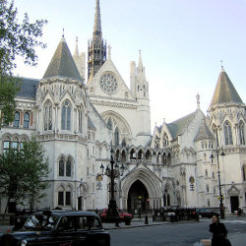The Charity Commission’s appointment of an interim manager to the Cup Trust was the first such appointment that the regulator has ever funded itself, its head of investigations and enforcement told the Charity Tribunal yesterday.
Michelle Russell was giving evidence to the Tribunal at the Royal Courts of Justice in defence of the Commission’s decisions in April this year to open a statutory inquiry into the Cup Trust and appoint an interim manager to it.
The Cup Trust’s sole corporate trustee, Mountstar PTC Ltd, is challenging both decisions, arguing that the actions taken were disproportionate and an improper use of the regulator’s powers.
The Commission reopened its investigations into the charity after The Times exposed the fact that it was running a tax avoidance scheme which was set to net its donors up to £55m in tax reliefs and deliver gift aid worth £46m to the charity. Just £150,000 has been granted to good causes since the Cup Trust was set up in 2010, yet £176m has passed though the charity in that time.
In March the Public Accounts Committee publicly took the Commission to task over its previous leniency with the charity, and Mountstar is claiming that the regulator only decided to take the actions it did against the organisation because it wanted to salvage its own reputation.
No risk to beneficiaries
On day two of the hearing yesterday, Mountstar’s barrister, Matthew Smith, asked Russell what statutory inquiry criteria the decision met, given that there was clearly no risk to vulnerable beneficiaries, or mismanagement or misconduct.
He pointed out that Mountstar trustee Matthew Jenner had offered to meet with the Commission on the day the inquiry was opened and the charity had offered a meeting with all three of the Mountstar directors two weeks later – yet the Commission pressed ahead and opened an inquiry and appointed an interim manager anyway, without telling them.
He suggested the Commission’s real motive, as well as rescuing its own reputation, was to appoint an interim manager who could procure the termination of the donors’ gift aid claims by threatening to name and shame them if they didn’t withdraw the claims.
But Russell denied this and said there was a “catalogue” of issues the regulator was concerned about: the complex network of individuals involved in the tax avoidance scheme and the apparent conflicts of interest in their various positions; the risk that Matthew Jenner was benefiting financially from the scheme, and the charity’s ongoing refusal to comply with HMRC demands for information.
The regulator was also alert to the changing public attitudes to tax avoidance that had been highlighted by the Cup Trust exposé, Russell said.
HMRC fine was ‘final straw’
She said that when HMRC notified the Commission that it had issued the Cup Trust with a fine for ignoring its information requests, that was the “final straw” that triggered the decision to appoint the interim manager and open the inquiry.
Under questioning from Tribunal chair Judge Nigel Gerald about why the actions were deemed so urgent, Russell said that because it was the first interim manager appointment to be funded by the Commission, it needed Treasury approval and the Commission expected that would take some time.
Interim managers are normally paid for out of the charity's funds, but the Cup Trust did not have sufficient funds.
Russell also said that once something happens to trigger a decision to act, any delay can weaken the case.
Russell added that when the Commission closed its original investigation into the Cup Trust in 2012 without taking any action, it never envisaged it might take up to eight years to settle the gift aid claims. As the Cup Trust is wholly reliant on that gift aid income to operate, it will likely be inactive throughout that period, and the Commission does not like to have inactive charities on the Register.
Risk to sector reputation
She accepted that the Cup Trust was in a no-lose position financially, but said its trustees should also have considered non-financial issues such as the impact of the adverse publicity on its reputation.
She added that the publicity was affecting public trust and confidence in charities generally but admitted under questioning by the judge that it was not an individual charity’s responsibility to be concerned with trust and confidence in the whole sector.
Matthew Smith submitted that the trustee had considered the reputation issue but decided that as nobody had previously heard of the Cup Trust, it didn’t have any reputation to speak of and so it might as well persist with the gift aid claims to try to secure the money for good causes.
He told the Tribunal that a more proportionate action by the regulator would have been to meet with Jenner and discuss its concerns before going ahead and appointing an interim manager.
At the end of the day, Smith said, “we are here because there is controversy about the involvement of a charity in a tax avoidance scheme”.
Commission wanted a ‘proper look’
But Ben Jaffey, representing the Charity Commission, said the regulator opened the statutory inquiry because it wanted to have a “proper look” at the charity’s affairs.
He said there was substantial public interest in the case and a statutory inquiry would afford protection to both sides, not least by allowing the trustee to challenge the decision in the tribunal, as it had done.
Jaffey told the tribunal judges that they had to assess the credibility of the Charity Commission witnesses and decide for themselves whether they were simply doing their job or whether they had a hidden agenda and were using Cup Trust and Mountstar to repair the Commission’s reputation.
“It is important to distinguish between trying to salvage one’s reputation and thinking again,” he submitted, “especially when a Parliamentary committee suggested you have previously been unduly lenient or failed to properly investigate.”
The case is continuing, with both lawyers still to finish summing up their cases, probably tomorrow.









